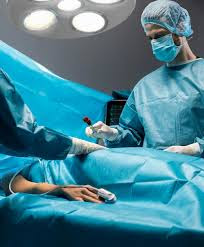Nutrition After Liver Transplant: Foods That Support Healing
Nutrition plays a crucial role in recovery after a liver transplant. The liver is responsible for digestion, metabolism, immunity, and detoxification. After surgery, the body needs the right balance of nutrients to support healing, prevent complications, and help the new liver function efficiently. A well-planned diet can improve strength, maintain a healthy weight, and support long-term liver health.
This guide explains the essential dietary needs after a liver transplant and the types of foods that offer the strongest support for recovery.
Why Nutrition Matters After a Liver Transplant
Recovery involves healing from surgery, adjusting to immunosuppressant medications, and rebuilding the body’s strength. Good nutrition helps by supporting tissue repair, improving energy levels, strengthening immunity, and reducing the risk of infections and complications. The right foods also help maintain healthy blood sugar, cholesterol, and body weight, all of which are important for long-term liver function.
Key Nutrients Needed After a Liver Transplant
Protein for Healing
Protein is essential for repairing tissues, strengthening muscles, healing surgical wounds, and supporting the immune system. After a transplant, the body needs more protein than usual. Ideal sources include lean chicken, fish, eggs, low-fat dairy, lentils, chickpeas, kidney beans, tofu, and unsalted nuts. Distribute protein intake throughout the day to increase absorption.
Healthy Carbohydrates for Energy
Carbohydrates are the body’s main source of energy, especially when recovering from surgery. Choose complex carbohydrates that provide steady energy. Whole grains such as brown rice, oats, whole wheat, quinoa, and millets are recommended. These foods also contain fiber, which supports digestion and helps manage blood sugar.
Heart-Healthy Fats
Healthy fats help the body absorb fat-soluble vitamins such as A, D, E, and K. They also support hormone function and help reduce inflammation. Good choices include olive oil, flaxseeds, chia seeds, walnuts, avocados, and fatty fish like salmon or sardines. Limit saturated fats found in fried foods, creamy sauces, and baked goods.
Vitamins and Minerals for Immunity
Vitamins and minerals support energy production, immunity, wound healing, and overall liver health. Foods rich in vitamin C like citrus fruits, berries, and tomatoes help strengthen immunity. Green leafy vegetables provide vitamin K, iron, and antioxidants. Bananas, potatoes, and coconut water supply potassium, which supports nerve and muscle function. Immunosuppressant medications can affect mineral balance, so regular monitoring and diet adjustments are often needed.
Hydration
Staying well hydrated helps the liver function properly and supports digestion and nutrient absorption. Water is the best option. Some patients may require specific fluid guidelines depending on their medical status, so hydration should always follow the doctor’s advice.
Foods That Support Healing After a Liver Transplant
Lean Protein Sources
Lean meats, egg whites, low-fat yogurt, cottage cheese, legumes, and fish provide the protein needed for tissue repair. Including protein in each meal helps maintain muscle mass and supports faster recovery.
Fresh Fruits and Vegetables
Fruits and vegetables provide antioxidants that help reduce inflammation and support immunity. Colorful fruits like oranges, apples, pomegranates, grapes, and berries offer vitamins and fiber. Vegetables like spinach, broccoli, beans, carrots, and zucchini strengthen overall health, support digestion, and nourish the liver.
Whole Grains
Whole grains offer a steady release of energy and essential nutrients like magnesium, fiber, and B vitamins. Foods such as oats, barley, whole-wheat bread, and brown rice help maintain stable energy levels and digestive health.
Healthy Fats from Natural Sources
Healthy fats support vitamin absorption and reduce inflammation. Including small portions of nuts, seeds, olive oil, and avocados helps the body maintain balanced nutrition without stressing the liver.
Fermented and Probiotic Foods
After a transplant, patients may be on long-term antibiotic treatments, which can affect gut bacteria. Probiotic foods help restore gut balance and improve digestion. Options include curd, buttermilk, and fermented foods approved by the doctor or dietitian.
Foods to Limit or Avoid
High-Sodium Foods
Too much salt may cause fluid retention and increase blood pressure. Avoid packaged snacks, pickles, canned soups, salted nuts, and processed meats. Choose fresh foods with minimal seasoning.
Raw or Undercooked Foods
Due to immunosuppressant medications, the risk of infection is higher. Avoid raw eggs, raw seafood, unwashed vegetables, and unpasteurized milk or juices.
Sugary and Processed Foods
Limit sweets, bakery items, sugary drinks, and fast food. These foods can cause weight gain and affect blood sugar levels.
High-Fat and Fried Foods
Greasy and fried foods are difficult to digest and can strain the liver. Choose grilled, steamed, or baked cooking methods instead.
Alcohol
Alcohol should be completely avoided after a liver transplant, as it can damage the new liver and interfere with medications.
Sample Day of Eating After a Liver Transplant
Breakfast may include oats with fruit, a boiled egg, and warm herbal tea.
Lunch may consist of grilled chicken or paneer, brown rice, and steamed vegetables.
A light afternoon snack could be a bowl of low-fat yogurt, fruit, or nuts.
Dinner may include fish or lentil curry, whole wheat roti, and sautéed greens.
Stay hydrated throughout the day with water unless instructed otherwise by the transplant team.
Long-Term Nutrition for Liver Health
After the initial recovery phase, the diet focuses on maintaining long-term liver health, strengthening immunity, and ensuring stable body weight. A balanced diet with lean proteins, whole grains, fresh produce, and healthy fats remains essential. Regular follow-ups with a hepatologist and nutritionist will help tailor the diet to individual needs and monitor the effect of medications.
Conclusion
Good nutrition after a liver transplant is a powerful tool for healing and long-term health. The right foods help the body repair itself, support immunity, improve energy levels, and protect the new liver. By choosing balanced meals, avoiding certain risky foods, and following medical guidance, patients can recover smoothly and maintain healthy liver function for years to come.




Comments
Post a Comment